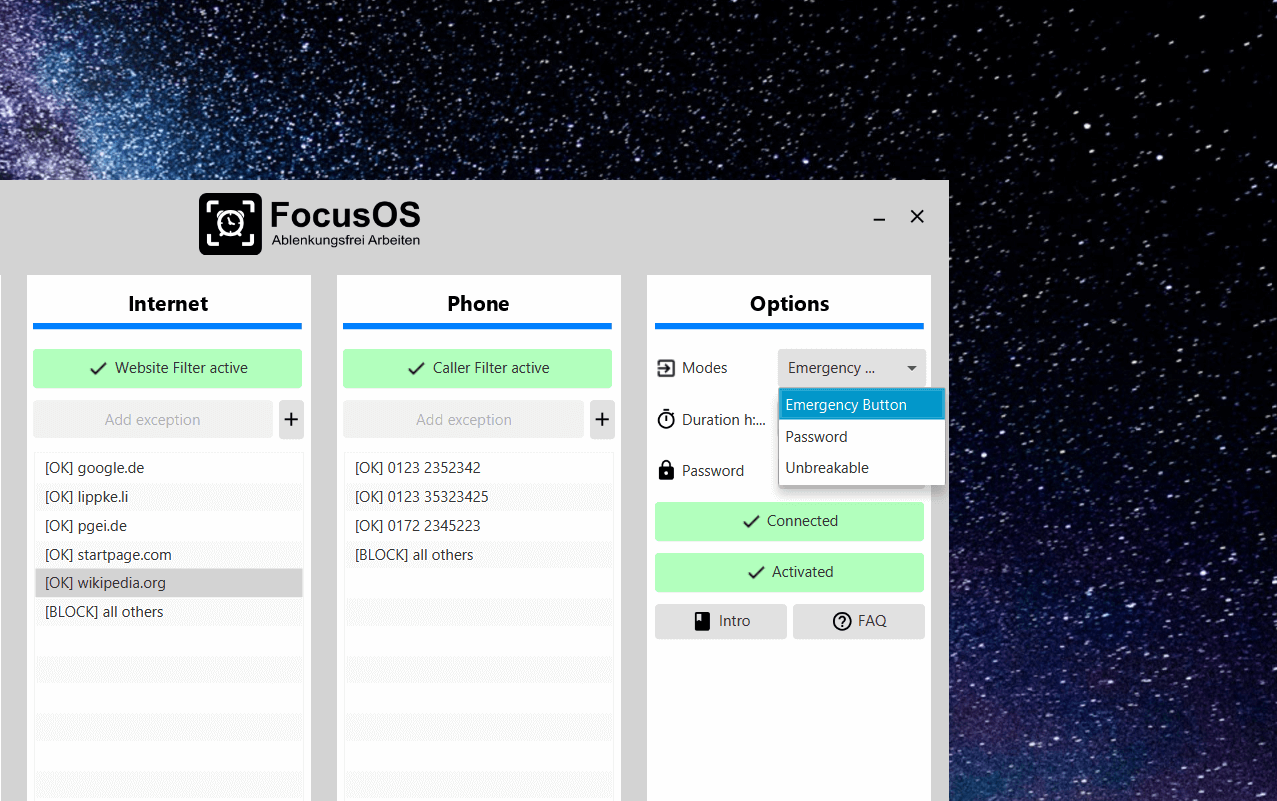

Research is showing that establishing a habit of writing about goals can boost performance.Ĭheryl Travers, PhD, a professor at the School of Business and Economics at Loughborough University in Leicestershire, England, asked students to identify areas where they needed to improve, such as raising a grade in a class or increasing concentration while studying. Many people who work are familiar with the idea of setting goals for themselves, but achieving those goals can be elusive. The results also showed that the breaks can be surprisingly short-only a couple of seconds for some tasks-to achieve this effect. "We know that after about 30 minutes, concentration starts to decrease, so it's important to take small breaks to stay focused on your main task." He found that participants who took a short break while focusing on a visual task maintained the same level of performance for 40 minutes, but performance declined for those who didn't take any breaks ( Cognition, Vol. Taking short breaks not only satisfies the technology fix, but it also allows us to maintain focus, according to a study conducted by Alejandro Lleras, PhD, a psychology professor at the University of Illinois at Urbana–Champaign.
#Undistracted focus how to
"Once you learn how to work for 15 minutes, start increasing the time before taking a technology break," Rosen says. The best way to stay focused is silencing the phone, turning it face down to avoid seeing visual notifications, turning off email alerts and closing distracting websites, Rosen says. To increase attention span and productivity, one of Rosen's solutions is the "technology break." He encourages students and workers to give themselves a couple of minutes to check alerts, texts and other messages after 15 minutes of undistracted work.

"These interruptions take us away from the task at hand." The original task becomes less salient in our brains, and when we return, we waste time trying to remember what we were thinking when we left, Rosen explains. "We may think we are multitasking, but we are really task-switching," he says. While it can be tempting to think that dealing with these messages is productive, Rosen says this is a false sense of effectiveness. He found that participants averaged less than 6 minutes of studying before switching tasks, most often due to technology distractions-phones vibrating, new email alerts or instant message notifications, as well as students' "self-interruptions" to check electronic devices ( Computers in Human Behavior, Vol. In one study, Rosen asked 260 middle school, high school and university students to study for 15 minutes in their homes. Grow your attention spanĮven though technology can empower us to accomplish things faster, Rosen has found that those benefits can disappear when digital distractions are so readily available. While this may not be plausible for everyone, Rosen's studies have shown how being distracted can become a bad habit that ultimately decreases our effectiveness at work or in school.įortunately, he and other psychology researchers have identified new ways to help people overcome the hurdles that stand in the way of their productivity, whether they are personal habits or environmental challenges. Rosen, professor emeritus of psychology at California State University, Dominguez Hills, goes as far as to suggest that people put up a "do not disturb" sign when they need to focus on a task. When Larry Rosen, PhD, talks to people who want to improve their productivity, he zeroes in on the importance of minimizing interruptions.


 0 kommentar(er)
0 kommentar(er)
